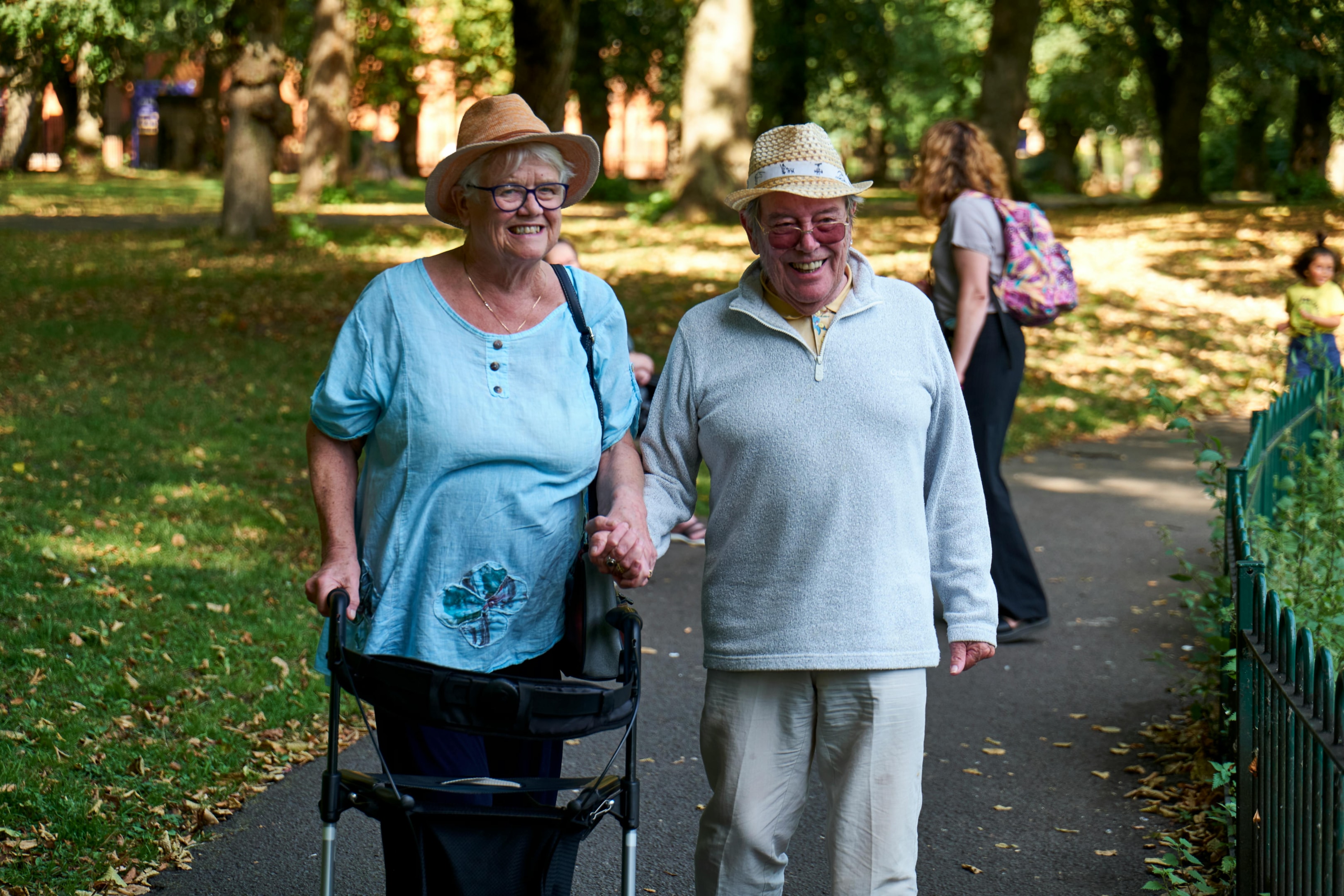Active retirement living is no longer just about leisurely days and long vacations; it’s increasingly about balancing work with pleasure by choice. Many retirees are finding fulfillment and purpose by continuing to work in some capacity while also enjoying traditional retirement activities. This shift is redefining what it means to retire, offering new opportunities for personal growth and satisfaction.
Modern Retirement: Combining Work and Leisure
Active senior living blends the best of both worlds: the freedom to enjoy leisure activities and the opportunity to engage in meaningful work. This approach allows retirees to stay active, maintain a sense of purpose, and enjoy financial benefits while still having the flexibility to pursue hobbies and spend time with loved ones. Combining work and leisure helps create a balanced and fulfilling retirement lifestyle. By the end of this article, you will be equipped with the knowledge and inspiration to create a retirement that is both productive and enjoyable.
The Benefits of Balancing a Job in Retirement

Financial Benefits: The Role of Investment Management
Balancing a job in retirement offers significant financial advantages that can enhance your overall quality of life.
Additionally, investment management can play a crucial role in optimizing financial benefits during retirement.
Supplemental Income
Working part-time or freelancing can provide a steady stream of supplemental income. This extra money can help cover unexpected expenses, fund travel and hobbies, or simply provide more financial freedom and security.
Enhanced Financial Security
Continued employment, even in a reduced capacity, can contribute to a more robust financial safety net. This additional income can help preserve retirement savings and reduce the need to draw down on investments too quickly, ensuring long-term financial stability.
Ability to Maintain a Certain Lifestyle
Earning an income during retirement allows retirees to maintain a desired lifestyle without compromising on activities or experiences. Whether it’s dining out, pursuing passions, or supporting family members, the financial benefits of working can make a significant difference in sustaining a high quality of life.
Additionally, understanding the monthly fee associated with retirement communities is crucial, as it can impact the ability to maintain this lifestyle.
Mental and Emotional Benefits

Continued Sense of Purpose for a Fulfilling Lifestyle
Working during retirement helps maintain a sense of purpose and direction. Engaging in meaningful work, whether through part-time employment, volunteering, or freelance projects, keeps retirees mentally active and provides a fulfilling reason to get up each morning. This sense of purpose is crucial for mental well-being and overall life satisfaction.
Intellectual Stimulation
Jobs that require problem-solving, critical thinking, and learning new skills offer valuable intellectual stimulation. Continuing to challenge the brain helps keep cognitive functions sharp, reducing the risk of age-related cognitive decline. Staying intellectually engaged through work can lead to a more vibrant and alert mind, enhancing daily life.
Combatting Loneliness and Isolation
Working, even part-time, offers opportunities for social interaction and building new relationships. Regular interactions with colleagues, clients, or customers can combat the loneliness and isolation that some retirees face. These social connections are vital for emotional health, providing support, friendship, and a sense of community. Living with people of one’s own age in retirement communities can also help combat loneliness and isolation by fostering age-specific activities and a shared sense of understanding.
Physical Benefits

Staying Active and Engaged: Embracing an Active Lifestyle
Active seniors can balance work with retirement activities to encourage a more active and engaged lifestyle. Jobs that involve physical tasks or regular movement help retirees stay physically active, which is essential for maintaining mobility and overall health. An active lifestyle can lead to better physical fitness and increased energy levels.
Health Benefits of Staying Busy
Staying busy through work can have numerous health benefits, including reduced stress levels and improved mental health. Engaging in regular work routines promotes a sense of structure and discipline, which can lead to healthier lifestyle choices such as regular exercise and better sleep patterns. These benefits contribute to a healthier and more balanced life.
Improved Overall Well-being
Combining work with leisure activities creates a holistic approach to retirement, enhancing overall well-being. The physical activity involved in certain jobs, coupled with the mental and emotional engagement, leads to a healthier and happier life. This balanced approach ensures that retirees enjoy their golden years with vitality and fulfillment, making the most of their retirement.
Integrating Work into Retirement

Identifying Potential Job Opportunities
Start by evaluating your interests, passions, and skills to identify potential job opportunities that align with your retirement goals. Consider roles that not only provide financial benefits but also bring personal satisfaction and enjoyment. Think about hobbies or previous professional experiences that you can turn into rewarding work during retirement.
Understanding Your Motivation for Working
Understanding why you want to work in retirement is crucial for finding the right opportunities. Are you looking for social interaction, intellectual stimulation, financial stability, or a sense of purpose? Clarifying your motivations will help you choose roles that meet your needs and enhance your overall retirement experience.
Aligning Job Choices with Personal Interests
Choose job opportunities that align with your personal interests and passions. Whether it’s working in a field you’ve always loved, pursuing a long-held hobby professionally, or trying something entirely new, aligning your work with your interests ensures that you remain engaged and motivated.
Finding the Right Balance

Determining Work Hours and Commitment
Determine how many hours you want to dedicate to work each week. Balancing work with retirement activities requires a commitment that doesn’t overwhelm your leisure time. Set clear boundaries to ensure that work does not encroach on your relaxation and enjoyment.
Ensuring Flexibility in Your Schedule
Flexibility is key to balancing work and leisure in retirement. Look for job opportunities that offer flexible hours or remote work options. This flexibility allows you to adjust your schedule as needed, ensuring you have time for other retirement activities and personal commitments.
Prioritizing Both Work and Leisure
Make sure to prioritize both work and leisure in your retirement routine. Create a schedule that balances productive work hours with time for hobbies, social activities, and relaxation. Striking this balance helps maintain a fulfilling and stress-free retirement lifestyle.
Types of Retirement Jobs

Part-Time Roles
Active adult part-time jobs are an excellent option for retirees looking to stay active and earn extra income without committing to full-time hours. These roles can range from retail positions to administrative jobs, offering a variety of opportunities to suit different interests and skill levels.
Freelance and Consulting Work
Freelancing and consulting offer retirees the chance to leverage their expertise and work on projects they are passionate about. This type of work often provides high flexibility, allowing retirees to choose their clients and set their schedules.
Active adult senior housing can provide a suitable living arrangement for those engaged in freelance and consulting work, offering various housing options such as free-standing homes, cottages, townhouses, or condo-style buildings, often with additional services and amenities.
Starting a Small Business
For those with an entrepreneurial spirit, starting a small business can be a rewarding way to stay busy in retirement. Whether it’s opening a local shop, offering specialized services, or selling handmade products, small businesses allow retirees to turn passions into profit.
Volunteering and Non-Profit Work in Retirement Communities
Volunteering and working with non-profits provide meaningful ways to give back to the community while staying active. These roles often offer flexible hours and the chance to work on causes you care about, enhancing your sense of purpose and social engagement in retirement. Additionally, the community offers in retirement communities can further enrich your volunteering experience by providing various amenities, features, and social activities.
Creating a Balanced Routine
Allocating Time for Work and Leisure
Creating a balanced routine starts with effectively planning your week. Allocate specific blocks of time for work and leisure activities, ensuring that neither aspect dominates your schedule. This balance helps maintain a healthy mix of productivity and relaxation, essential for a fulfilling retirement.
Creating a Flexible Schedule
Flexibility is crucial for a balanced retirement. Design a schedule that allows for adjustments as needed, accommodating unexpected events and spontaneous activities. A flexible approach ensures that you can adapt to changes without feeling stressed or overcommitted.
Ensuring Time for Rest and Relaxation
Rest and relaxation are vital components of a balanced routine. Ensure that your weekly plan includes ample time for rest, whether it’s a daily nap, a quiet evening at home, or a leisurely weekend. Prioritizing relaxation helps prevent burnout and promotes overall well-being.
Incorporating Variety
Balancing Different Types of Activities
A varied schedule keeps life interesting and engaging. Balance your routine by including different types of activities such as physical exercise, mental challenges, social interactions, and leisurely hobbies. This variety helps maintain a holistic approach to retirement, catering to all aspects of your well-being. Communities typically offer a variety of activities and amenities to support this balanced lifestyle.
Avoiding Burnout
To avoid burnout, be mindful of not overloading your schedule with too many activities, especially work-related tasks. Listen to your body and mind, and take breaks when needed. Ensuring a mix of high-energy and low-energy activities helps keep you refreshed and motivated.
Maintaining Overall Well-being
Maintaining overall well-being requires a balanced approach to physical, mental, and emotional health. Incorporate activities that nurture each aspect, such as regular exercise, mental puzzles, and social engagements. This comprehensive approach supports a healthier, happier retirement.
Adapting Over Time
Being Open to Changing Interests and Needs
As you progress through retirement, your interests and needs may change. Stay open to exploring new activities and adjusting your routine accordingly. Embracing change keeps your retirement dynamic and enjoyable, allowing you to discover new passions and opportunities. Adapting to new activities can significantly contribute to a fulfilling lifestyle in retirement.
Adjusting Your Routine as Necessary
Regularly evaluate your routine to ensure it continues to meet your needs and preferences. Adjust work hours, try new hobbies, or shift the balance between work and leisure as necessary. This adaptability helps maintain a fulfilling and stress-free retirement lifestyle.
Staying Responsive to Health and Energy Levels
Your health and energy levels can fluctuate over time, so it’s important to stay responsive to these changes. Modify your schedule to accommodate your current state, ensuring that you don’t overexert yourself. Prioritizing your health helps you stay active and engaged throughout retirement.
It’s Important to Balance Work and Leisure in Retirement
Balancing work and leisure in an active retirement community is crucial for maintaining a sense of purpose, financial security, and overall well-being. Engaging in meaningful work while enjoying traditional retirement activities ensures that retirees lead fulfilling and active lives. This balanced approach helps prevent burnout, loneliness, and boredom, contributing to a happier and healthier retirement.
Benefits of Combining Traditional and Modern Approaches
Combining traditional retirement activities with the benefits of a retirement community and modern work opportunities offers a comprehensive approach to retirement. This blend allows retirees to enjoy the best of both worlds—staying intellectually stimulated and socially connected through work, while also having the freedom to pursue hobbies, travel, and relax. This dual approach enriches the retirement experience, providing variety and fulfillment.
FAQs
How Much Should I Work in Retirement?
The amount of work you should undertake in retirement depends on your personal goals, financial needs, and health. Some retirees find satisfaction in working 10-20 hours a week, while others may prefer occasional freelance projects or seasonal work. It’s important to find a balance that allows you to enjoy your retirement while staying engaged and financially secure. Listen to your body and mind, and adjust your work hours accordingly to avoid burnout.
Senior living communities can provide an ideal environment to balance work and leisure, offering various activities, amenities, and resources tailored to older adults.
What Types of Jobs are Suitable for Retirees?
Many jobs are well-suited for retirees, offering flexibility and fulfillment. Part-time roles in retail, consulting, or administrative positions can provide social interaction and a steady income. Freelance and consulting work allow you to leverage your expertise on your terms. Starting a small business or engaging in entrepreneurial activities can turn a passion into profit. Volunteering and non-profit work offer meaningful engagement without the pressure of traditional employment. Additionally, active retirement communities offer various job opportunities for retirees, such as roles in community management, event coordination, and recreational activities, fostering a sense of purpose and community involvement.
What are the Risks of Working Too Much in Retirement?
Working too much in retirement can lead to physical and mental exhaustion, overshadowing the joys of this life stage. Overcommitment can cause stress, negatively impacting your health and well-being. It may also limit your time for leisure activities, social interactions, and personal interests, reducing the overall enjoyment of retirement. Finding a balance is crucial to ensure that work enhances rather than detracts from your retirement experience. Listen to your body, set boundaries, and prioritize your overall well-being to avoid these risks. Additionally, access to quality medical care is essential to address any health issues that may arise from overworking.







